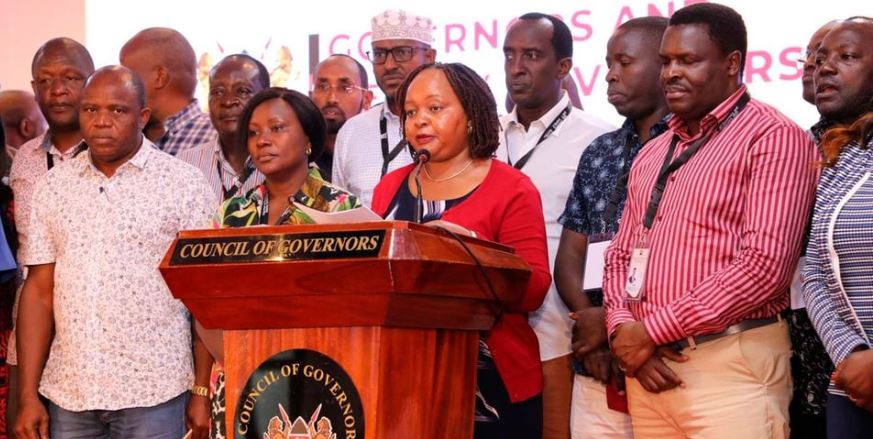
This followed a consultative meeting between the Education Committee and the CoG, specifically the Legal, Constitutional Affairs, and Intergovernmental Relations, to evaluate the implications of the proposed reforms.
Underlining the pivotal role of education as a primary catalyst for socio-economic development, the Council appreciated initiatives focused on enhancing the education sector but expressed concerns about the recommendations put forth by the Presidential Working Party.
Nevertheless, they pointed out that the recommendations pose a substantial threat to the devolution of education functions, a responsibility that counties have been conscientiously handling since its inception.
“The recommendations of the Presidential Working Party are unacceptable to the Council they heavily claw back on devolution,” the CoG said in a statement.
The Council highlighted the significant progress achieved by County Governments in reforming devolved education functions. They said they manage a network of over 30,400 pre-primary schools, employ more than 54,000 pre-primary teachers, and facilitate education for over 2.3 million children across the Counties.
Notably, the devolved units collectively allocate over Sh8 billion annually to the education sector, an accomplishment made without specific financial resources initially devolved for pre-primary education.
The Council pinpointed specific areas of disagreement in the recommendations, which include:
- Comprehensive School System: The CoG opposed the establishment of a comprehensive school system, expressing concerns about the lack of accountability to counties for the management of pre-primary schools.
- Intergovernmental Agreement for Teachers: The report suggested an intergovernmental agreement for hiring and remuneration of pre-primary teachers, a move contested by the CoG.
- County Commissioner as County Education Board: The recommendation to amend the basic education act to have the County commissioner as the County Education Board was criticized as a drawback on devolution gains.
- Hiring of Pre-primary Teachers: The CoG reiterated that the hiring of pre-primary teachers is within the purview of county governments, citing a High Court ruling.
- Coordination Framework for Development Partners: The CoG proposed a framework where the Ministry of Education coordinates national education partners, while the CoG manages partners supporting devolved education functions.
In response to these concerns, the Council of Governors has made the following collective decisions:
- Rejection of Recommendations: The Council unequivocally rejects the recommendations in their entirety, asserting that they undermine the basic structure and framework of the constitution.
- Withdrawal from Legislation Process: The Council of Governors officially withdraws its participation from any process aiming to legislate the recommendations, including the proposed meeting scheduled for January 16, 2023.
- Continued County Management: County Governments will persist in managing both institutions and human resources for constitutionally assigned functions in education.
- Devolved Sector Forums: Any convening of devolved sector forums will strictly involve the two levels of government, excluding other entities.
The press statement concluded with the Council of Governors expressing its commitment to enhancing the quality of education and training in the country while strongly protesting against attempts to claw back on devolution in the education sector and other devolved sectors.








